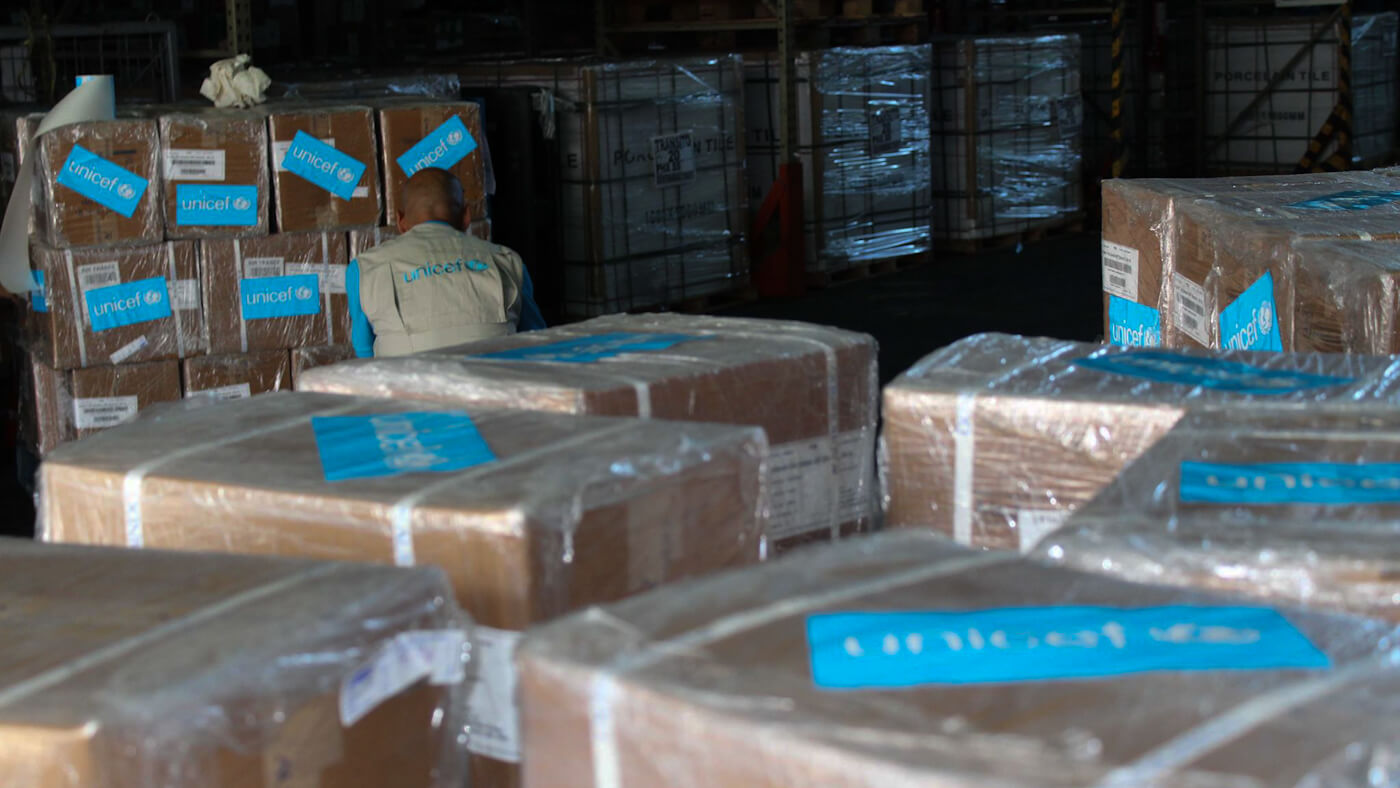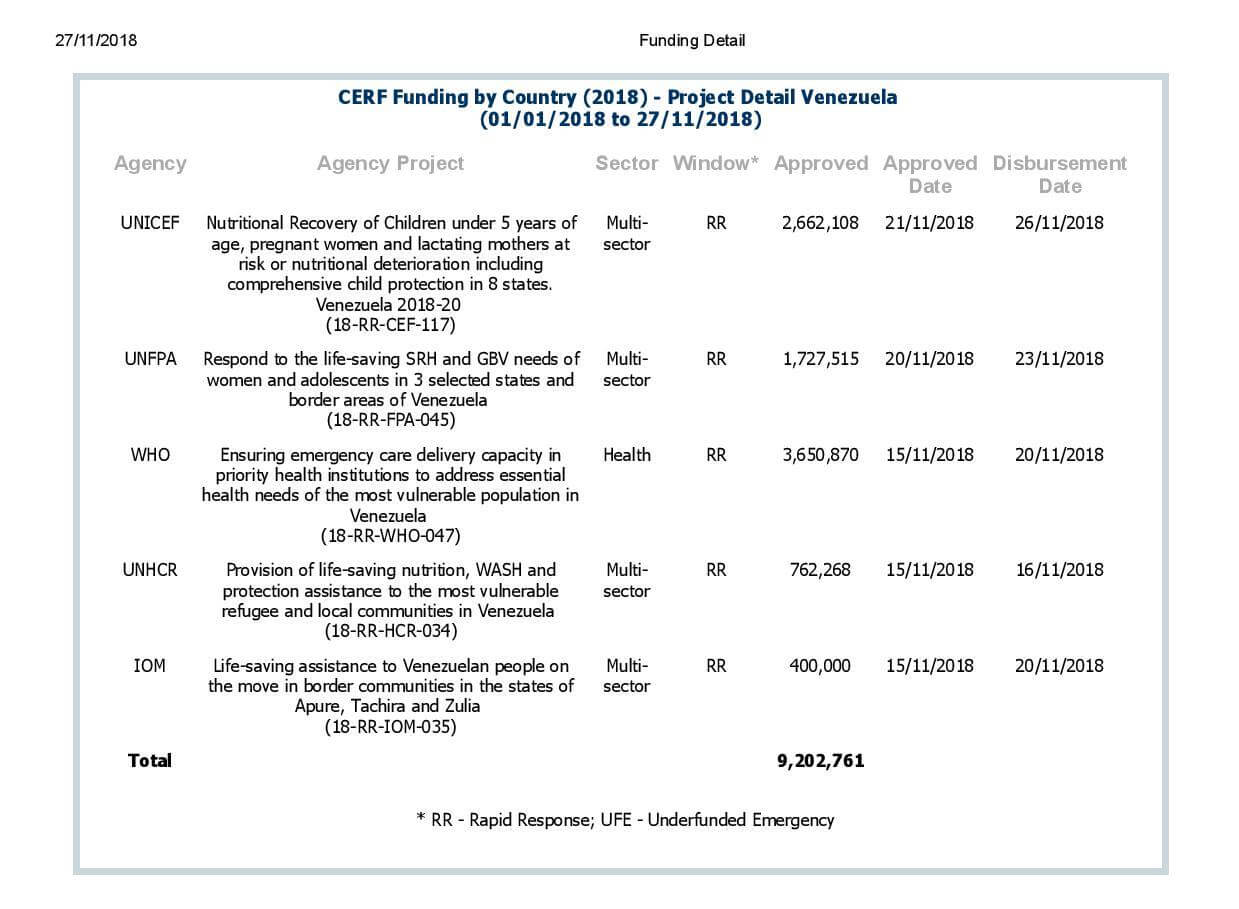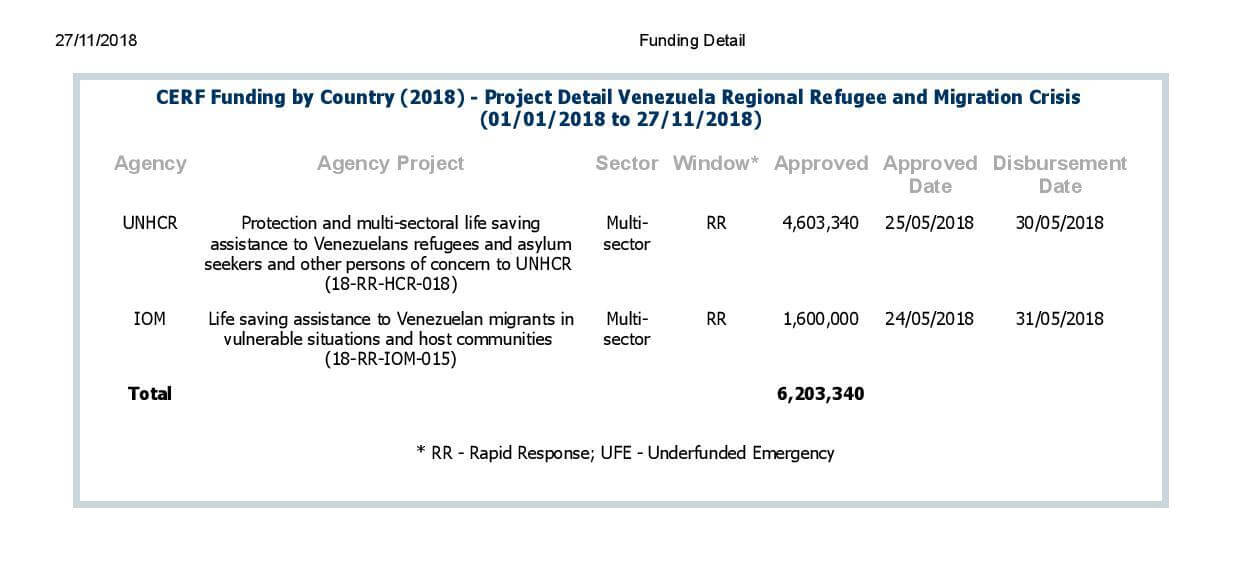The United Nations Central Emergency Response Fund (CERF) has assigned US $9.2 million during the month of November to reinforce existing efforts to alleviate the impact of Venezuela’s economic downturn, UN officials announced Monday.
The funding, most of which has already been disbursed, will target sectors hardest hit by US-led sanctions, such as health and nutrition. With the support of UN bodies present in Venezuela, it will be channeled through government organizations which run the public healthcare and organize a series of subsidized food programs, indicating international will to work with the Venezuelan government and its programs to resolve the current crisis.
Whilst this is the first time that the Venezuelan government receives direct financial support from the UN CERF agency, it has previously worked closely with a number of UN bodies including the UN Children’s Emergency Fund (UNICEF) and the UN Educational, Scientific, and Cultural Organisation (UNESCO), as well as coordinating efforts in areas such as the return of Venezuelan migrants, health, and nutrition.
The first installments of the financing were approved only forty-eight hours after a public appeal from President Nicolas Maduro for UN assistance in breaking the international financial blockade against his country.
“I ask for support from the UNDP, from the UN system, because as you know the imperialist government of the United States is persecuting and blockading us. If I want to buy some essential equipment somewhere in the world to protect our pregnant women, the US government persecutes us and impedes or delays [the purchase],” stated Maduro on November 13.
US-led sanctions have made it increasingly difficult for Venezuelan agencies or private firms to engage in international transactions, exasperating shortages in vital imported medical and food supplies. Independent analysts, as well as the UN Human Rights Council, have declared the blockade as illegal and criminal.
The latest installment includes US $2.6 million to reinforce UNICEF efforts that have delivered more than 130 tonnes of nutritional and medical supplies since August following an agreement between the agency and the Caracas government, a press release from the UN agency reported.
The new financing is “really an expansion of the work we were already doing,” explained New York-based UNICEF spokesman Christopher Tidey. UNICEF has worked in Venezuela since 1991.
The supplies are being directed at social programs targeting 350,000 Venezuelan women and children, including 25,000 pregnant women, 10,000 newborn children, and 2,300 children with HIV across eight Venezuelan states. To date, 100 tonnes have been distributed, the report explains.
HIV sufferers have particularly felt the impact of international sanctions, with the Venezuelan government making numerous denouncements that treatment payments have been blocked by US financial bodies acting in accordance with the White House’s sanctions.
Apart from the UNICEF funding, US $1.7 million has also been granted to the UN Population Fund (UNFPA) during November, as well as US $3.6 million to the World Health Organisation, US $762,000 to the UN High Commissioner for Refugees (UNHCR), and US $400,000 to the International Organisation of Migration (IOM), all for health and nutritional support within Venezuela, according to the CERF website.
The CERF had also assigned US $6.2 million earlier this year to neighboring countries to deal with the upsurge in Venezuelan migrants.
President Maduro has coincided with independent UN experts in refutingthe existence of a humanitarian crisis in Venezuela, claiming that the US and its allies are using the idea to justify direct intervention in the country. He has, however, repeated his willingness to work with international agenciesin resolving supply problems created by the sanctions on numerous occasions.
This week, Maduro reiterated his invitation to the UN High Commissioner for Human Rights, Michelle Bachelet, to visit the country and observe “the ample and historic efforts [being made] in favour of guaranteeing and promoting human rights amongst Venezuelans.”
His invitation, which was delivered by Venezuela’s UN representative Jorge Valero, expressed that “the doors of our Homeland are open, [she] is welcome in Venezuela when she wants to visit us.”
#ATENCIÓN | Representante Permanente de Venezuela ante la ONU-Ginebra, Jorge Valero, entregó este #26Nov a la Alta Comisionada de Naciones Unidas para los DDHH, Michelle Bachelet, una carta del Presidente @NicolasMaduro con la que la invita a una visita oficial a Venezuela pic.twitter.com/LSEcrHRFsR
— VTV CANAL 8 (@VTVcanal8) November 26, 2018
“Venezuela’s Permanent Representative at the UN-Geneva, Jorge Valero, handed in a letter from President Nicolas Maduro to the High Commissioner for Human Rights, Michelle Bachelet, this #26Nov in which he invites her to make an official visit to Venezuela,” reads this tweet.
Top Photo | A UNICEF aid shipment to Venezuela is shown. Photo | UNICEF
Source | Venezuelanalysis




